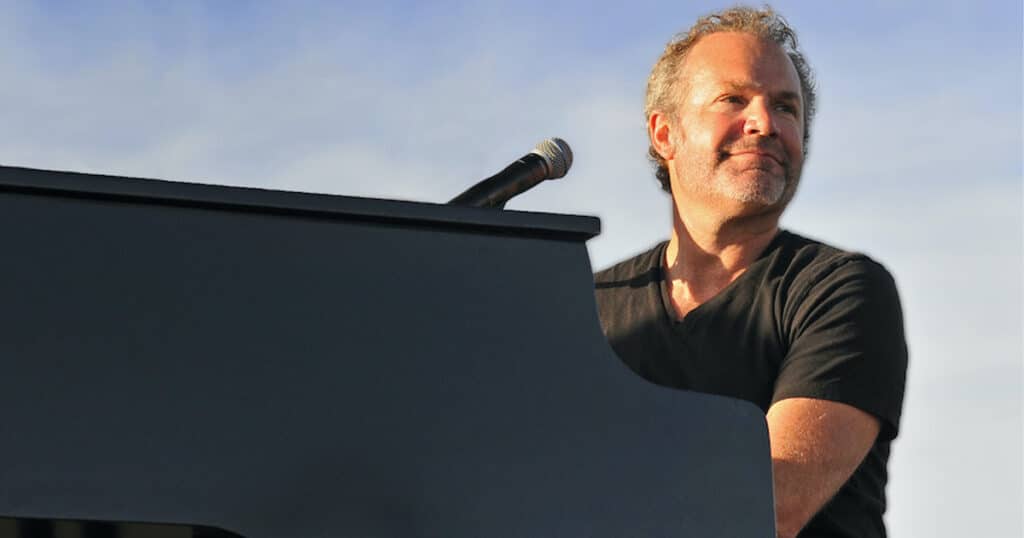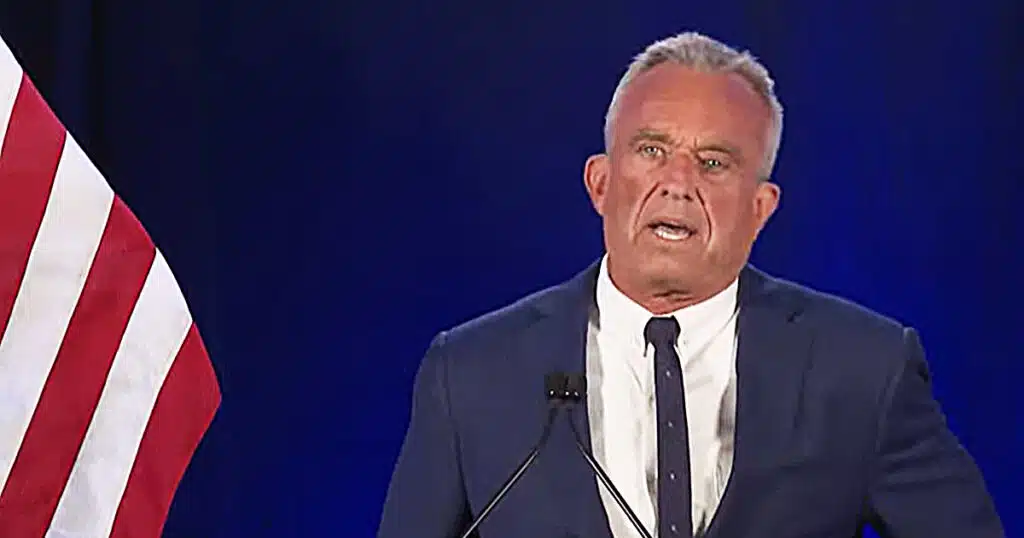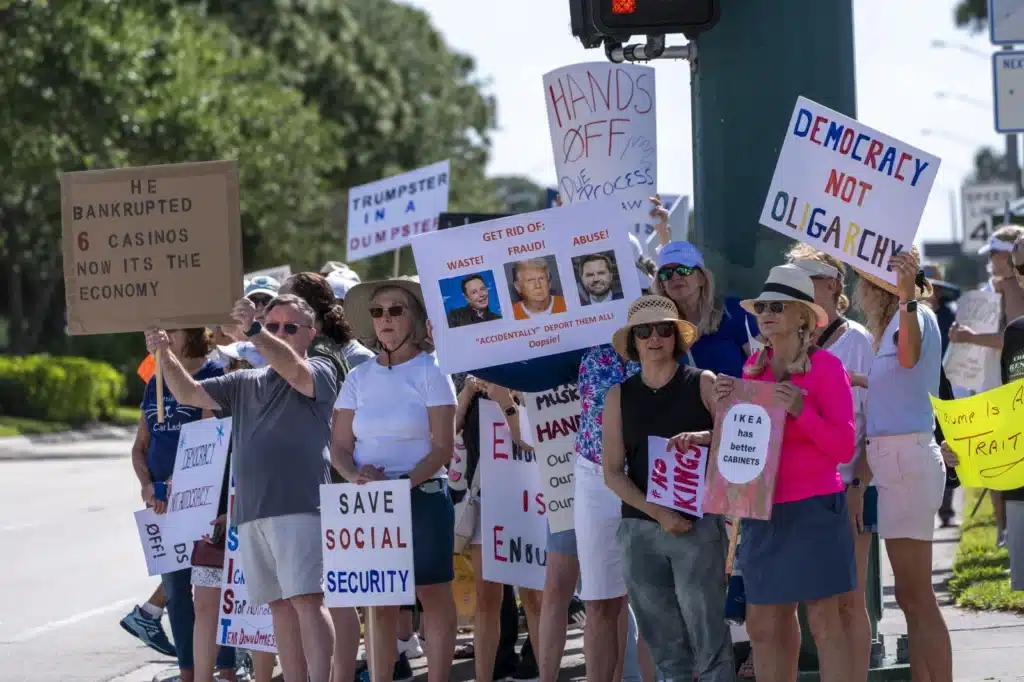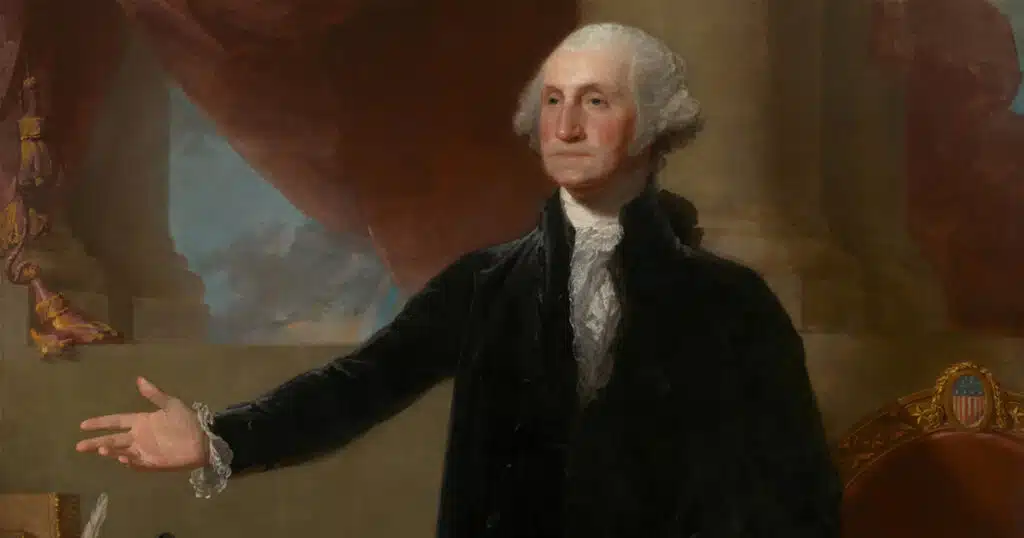
John Ondrasik on New 10/7 Anthem: “We’re at a Tipping Point”
John Ondrasik couldn’t stomach what was happening in his neighborhood. After the horrifying Hamas terrorist attacks in Israel on Oct. 7, his usually quiet community in Thousand Oaks, Calif., erupted. In the early aftermath of the attacks, Ondrasik would often drive by a street corner near his house where dueling Israel-Hamas war protests were raging every day.
Then, Paul Kessler, a 69-year-old Jewish man supporting Israel, was involved in an altercation with a pro-Palestinian protester on the same street corner and died at a nearby hospital several hours later. Kessler’s death shook his community and the Temple Etz Chaim, where he and his wife had been longtime members.
“It was down the street from my house,” Ondrasik recalled. “It’s affecting us everywhere.”
Ondrasik, 59, is a Grammy-nominated Los Angeles-based musician who performs under the name Five for Fighting. His ballad titled “OK” was released last week. It is the first attempt by a mainstream American artist to take on the sheer brutality of the Oct. 7 attacks on Israel and their shocking fallout. The contemplative opening expresses deep concern about the state of a world in which anyone could cheer on atrocities committed against helpless civilians, including children and the elderly.
“This is a time for choosing,” Ondrasik intones. “This is a time to mourn; the moral man is losing. Forbidden, lost forlorn.”
Ondrasik expresses a mix of horror and confusion about the scenes unfolding around him while an unflinching accompanying video displays the images behind his despair. It includes footage of atrocities committed against Israelis, juxtaposed with pro-Palestinian protests on U.S. college campuses and Ivy League leaders refusing to denounce calls for the extermination of Jews by students.
“I don’t understand, I don’t understand, how you can look yourself in the mirror,” he continues in the song. “We. We are. We are not. We. We are not. We are not OK.”
The video begins with a line from New York Mayor Eric Adams’ rousing Oct. 10, 2023 speech in which Adams decried the treatment of Israeli civilians, as well as those who have refused to condemn it, repeatedly declaring, “We are not alright.”
In an accompanying note to his ballad, Ondrasik elaborates on his outrage over those who have either cheered Hamas or remained silent in the face of the grotesque torture, rape, and murders of more than 1,200 innocents.
“We Are Not OK as a nation when certain members of Congress refuse to condemn terrorists who kidnap and decapitate babies,” he writes. “We Are Not OK when our flagship universities become harbors of gross antisemitism and radicalization, headed by presidents, boards, and faculty steeped in moral and intellectual corruption, who lack the spine to simply declare right from wrong.”
Ondrasik also challenges his own industry, condemning “the majority response from music industry executives, artists, and Hollywood” for producing “lawyered statements loaded with cowardly apathy.”
Twenty-three years ago, there was far more solidarity. In late 2001, Ondrasik’s song “Superman (It’s Not Easy)” became the unofficial anthem of 9/11 first responders, hit the top of the charts, and was nominated for a Grammy in 2002.
More recently, he says, his latest endeavors – a song about the tragic Afghanistan withdrawal (“Blood on Our Hands”) and another about the courage Ukrainian President Zelensky has demonstrated in standing up to Russia (Can One Man Save the World) – have served as outlets for the raw emotion too many Americans are keeping pent up in an era of deep divisions.
As human rights advocates meet in Washington this week for the International Religious Freedom Summit promoting tolerance for different faiths, Ondrasik talked to RealClearPolitics about his new song, the rise of antisemitism in America, and tackling politically charged topics in an era of woke politics.
Q: What was your impetus for writing the song “OK”?
A: One of the reasons I wrote it was pure shock regarding the reaction [to the Oct. 7 attacks on Israel] – not just by those in the Middle East but by Americans. After the atrocities – you see the videos – and you’re just horrified, disgusted … I remember after 9/11, we walked down Seventh Avenue, and you see the posters of missing people … their families still had hope. I can’t imagine ripping down those posters. So, you see that and the rampant antisemitism in our universities … and the [pro-Hamas] propaganda in Congress. You see the media in so many respects become mouthpieces for Hamas, and you’re just shocked and horrified about the aftermath.
[New York Mayor] Eric Adams’ speech starts the video. I thought it was a very brave speech, but it shouldn’t be brave. Everybody should be standing up and condemning [the attack]. But there are people actually celebrating putting babies in ovens. [Journalist] Bari Weiss’ speech was also inspiring to me. [She said] antisemitism is really the tip of the spear and reflective of a much deeper damaged culture. That resonated with me. It’s not just pro-Israel and anti-Hamas fervor. It’s much deeper than that. The hero of the video is a Palestinian woman, who I specifically put in there, who is calling out Hamas. I wanted to recognize these heroes and really call it out as a moral issue.
The fact that the nation of Israel’s X.com account tweeted [out the song shortly after it was released], I think speaks to the fact that so many people are asking, “Where is our moral spine in the age of silence?”
Q: How does this compare to your feelings after 9/11 when most of the world stood in solidarity with America, and your song, “Superman,” became the unofficial anthem of first responders?
A: I never felt the need to be political or take stands, but I think it was a unique education to see firsthand how music can transcend. And it wasn’t just my song. I remember sitting there watching The Who blow the roof off Madison Square Garden [at a post-Sept. 11 benefit concert.] And all the workers, all the folks in medicine, you know, in that arena, most of them had been working at ground zero since 9/11, digging through rubble, finding body parts. It’s just horrible to imagine. And that night, I think was the first time that many of those workers had a chance to release and express their emotion, whether it was singing, screaming, or crying.
I remember when I was singing “Superman,” looking down to the audience, and I focused on this one kind of big dude, probably a union worker who had a beer in each hand. He was just screaming “Superman!” at the top of his lungs and crying. So, I saw firsthand how music can provide solace amid these historical tragedies.
I really kind of disdain celebrities on their soapboxes, preaching to us about their political leanings. So, I don’t wanna be that guy. Why should you care what I think? But at the same time, in history, we’ve seen protest songs that have resonated and made a difference, and you get a sense of history by listening to the music [of that era].”
Q: You prefer saying that your latest songs are moral rather than political commentaries. What do you mean by that?
A: It started with the withdrawal from Afghanistan. It kind of reminds me what we just went through with this Oct. 7 attack. You see the atrocities, you see these horrible things that you can’t imagine, and you’re shaking, heartbroken, and you’re angry.
I started to write a song about Afghanistan because I had a friend who, after the withdrawal, called me and said, “I gotta go down to Afghanistan and rescue our Americans [who are stuck there.]”
I’m like, “Are you kidding me? You’re risking your life to go back and get some of these guys, our allies who risked their lives for you?” So, I wrote “Blood on Our Hands.” And then it came out and became a voice for veterans. And I somehow got involved with many of these groups rescuing Americans [from Afghanistan] because people were emailing me. They were so desperate, they were emailing me to get out of Afghanistan. So, I started working with some senators and some of these NGOs. I got involved in this effort, which was very inspiring because these people were amazing. But it made me very angry at our government for what we did [abandoning Americans and Afghan allies there].
And when the Russian invasion of Ukraine happened, again, I didn’t have a plan to write the song “Can One Man Save the World.” But then I saw this guy, Zelensky, and I’m like, who is this guy? He’s a comedian. Our country offered him a plane ticket to leave … and he said, “No, you can keep your plane tickets, but I’ll take some Stinger missiles. And I’ll probably die with my wife and children in the next few days, but I’ll die fighting.”
Where have we seen that in the West in the last 30 years? We haven’t seen that kind of bravery since Churchill, frankly. And so, I wrote that song, and that led to being asked to go to Ukraine to see the strength of the Ukrainian people firsthand. I remember after I wrote that I said, “God, I really hope I don’t have to write those songs that are depressing.” Then, of course, Oct. 7 happened. It was, again, such a visceral reaction that I just felt the need for my own sanity to write something.
If it were a Republican [president] who pulled out of Afghanistan and did what Biden did, the song would remain the same, only the names would change. It’s really a moral message, because if we cannot condemn what Hamas did, state that those atrocities are evil, without using words like “context,” then nothing is evil, and we’ve lost our minds.
I really believe the songs are moral messages. They’ve been perceived politically, and people will use them to further whatever their agenda is. But in my mind, they are moral – because they’re not picking a side. They’re not pushing an agenda. All of those images in the “OK” video are pulled from news reports, images of what happened.
With the Afghanistan song, we sent that out to 400 mainstream and music media outlets, and very few people covered. I know for a fact that if it had been a Republican administration overseeing that withdrawal, I would have been on a lot of different shows. And then, when the Ukraine song came out, that son was embraced by “Good Morning America.” So, everyone has their narrative to preach.
Q: Why do you say in “OK” that “It’s a time for choosing”?
A: With the attack on Israel, it’s critical in terms of the battle for civilization. It’s not just Harvard, it’s not just the BBC, or Rep. Rashida Talib [who won’t condemn the Oct. 7 attacks], it’s the head of the United Nations. It’s the fact that among 18-24-year-olds, more than half think Israel should cease to exist. To me, that’s the most depressing of all. We are losing our youth. We are losing the next generation to this radical oppressor/oppressed woke mindset, that is incredibly dangerous, for not just America, but the future of the world. So, we’re at a tipping point of which way we’re going to go. We cannot put our heads in the sand anymore. We can’t issue the kind of pathetic, lawyer-written statements that we see from Hollywood or we see from the majority in the music industry. We owe it to our children to do the right thing.
This article was originally published by RealClearPolitics and made available via RealClearWire.



